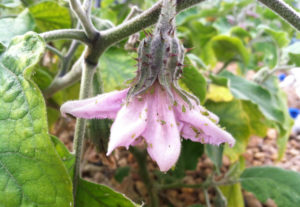 Here are some quick tips on dealing with aphids in aquaponics. It’s important to know that Aphids are very common and everyone deals with them at some point or another so don’t take it personally!
Here are some quick tips on dealing with aphids in aquaponics. It’s important to know that Aphids are very common and everyone deals with them at some point or another so don’t take it personally!
- The most important things for managing aphids are strong healthy plants, which means they are growing in their preferred temperature range, with the right nutrients (40-80ppm nitrogen), there is good air flow and air exchange thru the building, plants aren’t too crowded.
- We typically alternate between BotaniGard ES and Azimax or Aziguard. We don’t like Neem oil and haven’t found it to be that effective. BotaniGard ES has bacteria that infect the bugs Azimax is an anti-feedent so they don’t eat and then starve, they also don’t reproduce.
- When spraying, hit the leaves from underneath which is where most the bugs live.
- Toss out any seedlings that already have bugs, they are weak and won’t get stronger.
- Use a variety of spray types to kill bugs multiple ways, always spray later in the day when the sun has gone off the plants.
- Spray light vinegar and water solution to acidify bugs.
- You may need to remove plants that are highly infested.
- Pest management is an on going and forever sort of activity, like washing dishes, and cleaning the house. It’s not the most fun job, but missing a few treatments will result in much bigger headaches.
- Beneficial insects such as, ladybugs or parasitic wasps, can be helpful but are often slow to respond unless they were already there before the aphids because their life cycle is longer than the aphids. Aphids can reproduce significantly faster. Also if the food source (aphids are gone) then the lady bugs are gone too and would have to be introduced.
We hope this helps answer what to do about aphids in aquaponics. Bug pressure is all about a complete ecosystem, it’s just not the part that we prefer. We have often explained to customers that there might be a few bugs, but that they can feel confident there is not a lot of nasty chemicals in their food from traditional pesticides.
